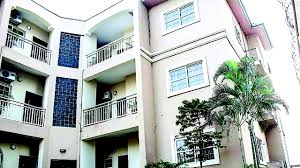Short-let rentals, especially through Airbnb and local platforms, are now changing the face of Nigeria’s real estate market, particularly in big cities like Lagos. As the country battles a serious housing crisis, more Nigerians are turning to short-term rentals for flexible and affordable accommodation.
With rapid urbanisation and a growing population, housing demand in cities is on the rise. But the cost of long-term rentals has pushed many people—especially middle-class families—towards short-let apartments. These properties offer fully furnished homes on a short-term basis, giving tenants more freedom and lower upfront costs compared to traditional rentals.
According to a new report by Edala Homes titled Lagos Short-let Market 2024, the short-let sector in Lagos alone generated N264.3 billion in 2024 and is expected to hit N300 billion by 2025. The report, which studied 5,806 listings (78% from AirDNA and 22% from Edala Homes’ data), shows how much short-let housing is now contributing to the hospitality industry and the Lagos economy.
The report says the growth is driven by Lagos being a top location for business and tourism, a rise in digital nomads, and the shift to remote work. In 2024 alone, demand rose significantly in areas like Ikoyi, Victoria Island, Banana Island, Lekki Phase I, Lekki Peninsula II, Ikeja, Yaba, and Surulere.
Ikoyi topped the chart for luxury rentals, with revenue of N37.5 billion in 2024 and a forecast of N42 billion in 2025. Lekki Phase I brought in the highest earnings at N94 billion, followed by Lekki Peninsula II at N70 billion. Victoria Island made N19.3 billion, projected to reach N21.6 billion in 2025. Banana Island generated N11 billion and is expected to hit N12.4 billion. Ikeja, Surulere, and Yaba also saw strong performance.
Samuel Olatunde, Chief Operating Officer at Edala Homes, said that high demand across all areas is expected to continue in 2025. He added that new areas are emerging fast, while existing luxury areas will remain stable and attractive to investors.
The report also warned that the Lagos State Government may tighten rules in 2025. This could include tougher regulations on tax, customer verification, and safety standards. Operators are advised to be proactive and keep good records.
Temidayo Oloyede, CEO of Edala Homes, said that the high number of tourists during the December festive season boosted earnings. Over 1.2 million tourists visited Lagos in December 2024, with 60% from within Nigeria and 40% from the diaspora.
A separate report by Estate Intel said short-let apartments have grown 263% in Lagos over the past three years. Diaspora demand and the flexibility these rentals offer compared to hotels are the main drivers. Airbnb data showed that the average listing in Lagos is booked for 161 nights a year, with an occupancy rate of 44% and daily rent of $66. In 2023, the typical host made $10,000 in income, and as of September 2024, there were 1,400 active Airbnb listings in Lagos.
Statista projects that Nigeria’s vacation rental market will earn $595.6 million by 2025 and reach $883.18 million by 2029. By then, user penetration will grow to 6.7%, with 70% of revenue coming from online bookings.
Meanwhile, property prices are rising. The BuyLetLive 2024 Property Price Index reported a 46.4% increase in short-let apartment prices in Lagos in 2024. Ikoyi saw the biggest jump at 60%, followed by Magodo at over 50%, Lekki Phase I, Ikeja, Surulere, and others also saw sharp increases.
Experts say this boom in short lets is both a good and risky development. Olorunyomi Alatise, an estate surveyor, said many landlords now prefer daily short-let income over yearly rent from long-term tenants. However, he warned that the trend is removing affordable housing from the market.
Dr. Kolade Adepoju, a real estate investor, said short lets show that real estate is becoming more investor-driven. He hopes good returns will encourage more investment into Nigeria’s economy.
Despite challenges like inflation, diesel costs, and high electricity tariffs, experts say operators can stay profitable by adopting solar energy and bulk services to cut costs. Short-let rentals are now a major force shaping the future of Nigerian real estate.
